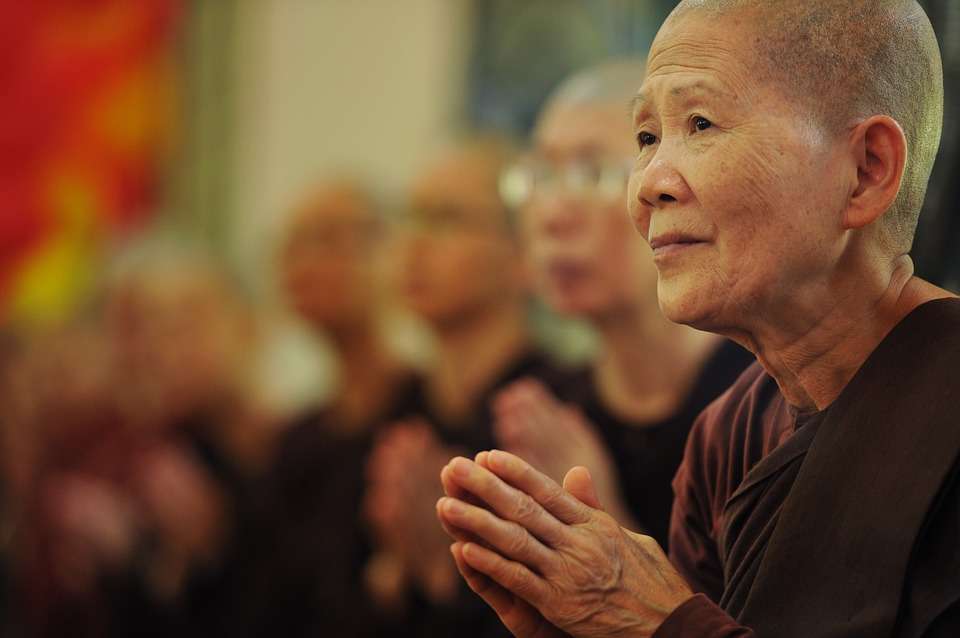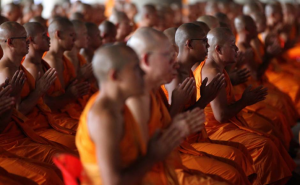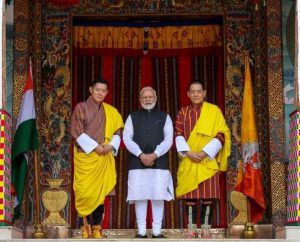
Come, Kālāmas. Do not go by oral tradition, by lineage of teaching, by hearsay, by a collection of texts, by logic, by inferential reasoning, by reasoned cogitation, by the acceptance of a view after pondering it, by the seeming competence of a speaker, or because you think, “The ascetic is our teacher.” But when you know for yourselves, “These things are wholesome; these things are blameless; these things are praised by the wise; these things, if undertaken and practiced, lead to welfare and happiness,” then you should engage in them. (AN 3:65; I 188–93) (Bodhi, 89)
This passage from the early Buddhist scriptures has, in recent years, become a popular quote. It is has been used to attest to the scientific nature of the Buddha’s teachings, proving that they are without doctrine or dogma. This is how I interpreted this passage when I first read it years ago. It gave me the sense that this tradition would not force me to believe in what I didn’t believe in, and that there would be room for questions. Coming from a Christian background where belief is central to religious life, this freedom to test things out for oneself felt to me both exciting and necessary.
This is all to say that I approach this passage with great appreciation—and with some reservations. As Buddhism spreads further and further from traditionally Buddhist communities in Asia, this passage is increasingly misinterpreted to show that the Buddha only taught people to do what feels good and to think for themselves. In North America and Europe, where I’ve lived and practiced, there is a strong tendency to focus on the first part of the passage and to forget the latter part. With all the horrific reports of sexual- and power-abuse scandals in so many religious communities, there is a profound wisdom and necessity in questioning teachers and spiritual leaders. Blind faith doesn’t wake people up to inner peace, unconditional love, and ultimate liberation.
But neither does rationalization. In commenting on this passage, noted scholar and translator Bhikkhu Bodhi writes, “This advice is sometimes quoted to prove that the Buddha rejected all external authorities and invited each individual to fashion his or her own personal path to truth. Read in context, however, the message of the Kālāma Sutta is quite different. The Buddha is not advising the Kālāmas—who, it must be stressed, had at this point not yet become his own disciples—to reject all authoritative guides to spiritual understanding and fall back solely on their personal intuition. Rather, he is offering them a simple and pragmatic outlet from the morass of doubt and perplexity in which they are immersed. By the use of skillful methods of inquiry, he leads them to understand a number of basic principles that they can verify by their own experience and thereby acquire a sure starting point for further spiritual development.” (Bodhi, 82)
The instruction to test out the teachings for oneself is not inherently at odds with the more common requirement of obedience found in many social and religious institutions. While today the word “obedience” refers to compliance with an authority figure or a law, the root of the word comes from the Latin ob, “in the direction” and audire, “hear.” Obedience is rooted in listening. Listening to others does not inherently negate listening within. In fact, we must listen to learn from our own experience, though it is risky.
Looking to experts for guidance is easier than trusting one’s own experience. There’s less mental energy required, less risk, and generally less discomfort from uncertainty. It requires great courage to let go of the habit of only listening to others, be they monastics, priests, scientists, or even politicians. Going beyond blind faith is an essential part of waking up to a living wisdom that can transform ourselves and the world. We all carry the seeds of wisdom within, even if we don’t believe it or know how to access it. There is a profound beauty in the assertion to trust one’s own experience that makes it worth repeating.
Yet we mustn’t forget that trusting experience is not the same as believing our every thought and perception. The habit of some people is to never listen to another and to trust only their own impulses. But as my teacher, the Venerable Thich Nhat Hanh, writes, “We often do not reflect things clearly, and we suffer because of our wrong perceptions. Suppose you are walking in the twilight and see a snake. You scream and run into the house to get your friends, and all of you run outside with a flashlight. But when you shine your light on the snake, you discover that it isn’t a snake at all, just a piece of rope. This is a distorted perception.” (Nhat Hanh, 41)
Aware that perception is almost always linked to deception, I give myself room to believe things only up to about 90 per cent, and leave the other 10 per cent to question. I revisit even the things that I feel are deeply true. I’ve been a vegetarian since i was 15 years old, long before I became a monastic, and happily so. But at times, when circumstances called for it, such as when traveling or when I was very ill, I tried eating meat. I didn’t want to get stuck in an idea disconnected from reality. After a few experiments, I was happy to go back to being a full-time vegetarian. Taking the time to question a long-held practice actually strengthened my commitment.
Going into the depths of this teachings also requires one to move beyond the sense of a separate self, or self-identification. If testing out the teachings remains a solo endeavor, it’s not truly the Buddha’s teaching. Stuck in the notion of being a separate individual, the Buddha’s message is easily turned around. In light of the teachings on emptiness and non-self that my teacher calls interbeing, learning to trust one’s own experience is a communal practice. In the passage that we began with, the Buddha told people to apply the teachings to access the experience themselves and see if it is matched by what is, “praised by the wise” and “lead to welfare and happiness . . .” We must both question and listen to the wisdom of our teachers. When exploring what truly leads to happiness or suffering, we must examine the results in light of the many, not only ourselves.
Any quotation taken out of context can be misinterpreted and misunderstood. Sometimes this passage is misquoted, leaving out any reference to being “praised by the wise” and “lead to welfare and happiness . . . ,” implying that one may simply trust one’s own intellect. But this is actually one of the things that the Buddha warns against. Trying to evaluate spiritual teachings by reflecting on them intellectually is like trying to dance an architectural plan. It might be interesting, but it won’t help to get us any closer to their true meaning.
The Kālāmas were a people who met a wide variety of spiritual teachers who taught very different explanations of karma, rebirth, and the path to awakening. This is not so different from the situation today where, with a computer and an Internet connection, one can access a diverse array of spiritual teachings that seem to contradict each another. We can come back to the full passage as a reminder to see:
But when you know for yourselves, “These things are wholesome; these things are blameless; these things are praised by the wise; these things, if undertaken and practiced, lead to welfare and happiness,” then you should engage in them.
Know for oneself what is wholesome, blameless, praised by the wise, leading to welfare and happiness—that’s all. Just sort this out and you’ll find the path to enlightenment! It is simple, but not easy. If it were truly easy, we would all have figured it out by now and not need teachers, practices, or even religions. We must listen to our own experience and to our teachers. Is this a trick? No. It’s simply a paradox—seemingly contradictory, yet true.
And as Carl Jung writes, “The paradox is one of our most valuable spiritual possessions . . . only the paradox comes anywhere near to comprehending the fullness of life.” (Jung 15)
References
Bodhi, Bhikkhu. 2005. In the Buddha’s words. Somerville, MA: Wisdom Publications.
Nhat Hanh, Thich. 1987. Being Peace. Berkeley: Parallax Press.
Jung, Carl Jung. 1980. Psychology and Alchemy (Collected Works of C. G. Jung Vol. 12), 2nd ed. Princeton: Princeton University Press.
Related features from Buddhistdoor Global
A Walk with Thay
Zen with a Brush: A Zen Approach to Creativity
The Daily Practice of a Modern Chinese Buddhist Nun: Meeting Master Sheng-Yen and Taking the Bodhisattva Vows











